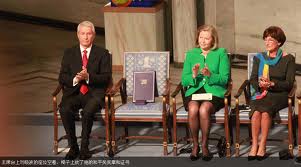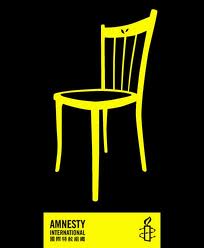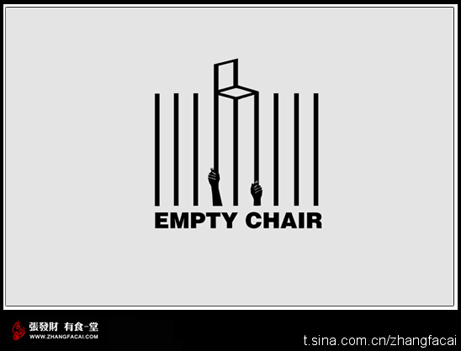“Empty chair”的版本间的差异
来自China Digital Space
| 第1行: | 第1行: | ||
空椅子 (kōng yǐzi): empty chair | 空椅子 (kōng yǐzi): empty chair | ||
| − | + | Writer and dissident [http://chinadigitaltimes.net/china/liu-xiaobo/ Liu Xiaobo], who was [http://chinadigitaltimes.net/2009/12/liu-xiaobo-sentenced-to-eleven-years/ sentenced to an 11-year prison sentence] for “[http://chinadigitaltimes.net/2012/01/subversion-vs-inciting-subversion-2/ inciting subversion of state power]” in 2009, was [http://chinadigitaltimes.net/2010/10/nobel-peace-prize-goes-to-liu-xiaobo/ awarded the 2010 Nobel Peace Prize]. [http://chinadigitaltimes.net/2010/12/liu-xiaobo-jailed-in-china-honored-in-absentia-by-nobel-committee/ Unable to attend the award ceremony in Oslo] due to his incarceration, the laureate was represented by his empty seat. Shortly thereafter, the term “empty chair” became a [[sensitive porcelain | sensitive word]] in Chinese cyberspace. | |
| + | |||
| + | As reported by the [http://chinadigitaltimes.net/2010/12/netizens-interpret-empty-chairs-on-the-cover-of-southern-metropolis-daily/ ''China Digital Times''], Some bloggers who have used the term have had their accounts blocked, and a campaign to post images of an empty chair on blogs and microblogs have seen the posts censored and images removed; some accounts have even been deleted for posting the image. | ||
''China Digital Times'' also reports [http://chinadigitaltimes.net/2010/12/netizens-interpret-empty-chairs-on-the-cover-of-southern-metropolis-daily/ here] about the ambiguous cover of the Guangzhou-based Southern Metropolis Daily, one of China’s most popular and outspoken newspapers. Was this cover a veiled reference to Liu Xiaobo? | ''China Digital Times'' also reports [http://chinadigitaltimes.net/2010/12/netizens-interpret-empty-chairs-on-the-cover-of-southern-metropolis-daily/ here] about the ambiguous cover of the Guangzhou-based Southern Metropolis Daily, one of China’s most popular and outspoken newspapers. Was this cover a veiled reference to Liu Xiaobo? | ||
2013年9月23日 (一) 23:31的版本
空椅子 (kōng yǐzi): empty chair
Writer and dissident Liu Xiaobo, who was sentenced to an 11-year prison sentence for “inciting subversion of state power” in 2009, was awarded the 2010 Nobel Peace Prize. Unable to attend the award ceremony in Oslo due to his incarceration, the laureate was represented by his empty seat. Shortly thereafter, the term “empty chair” became a sensitive word in Chinese cyberspace.
As reported by the China Digital Times, Some bloggers who have used the term have had their accounts blocked, and a campaign to post images of an empty chair on blogs and microblogs have seen the posts censored and images removed; some accounts have even been deleted for posting the image.
China Digital Times also reports here about the ambiguous cover of the Guangzhou-based Southern Metropolis Daily, one of China’s most popular and outspoken newspapers. Was this cover a veiled reference to Liu Xiaobo?
For more on China’s attempt to censor images empty chairs, see here (English) and here (Chinese).
Use of the empty chair symbol by Amnesty International
The Southern Metropolis Daily's controversial cover








